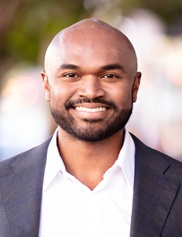Grants Funded
ASPS/PSF leadership is committed to continuing to provide high levels of investigator-initiated research support to ensure that plastic surgeons have the needed research resources to be pioneers and innovators in advancing the practice of medicine.
Research Abstracts
Search The PSF database to have easy access to full-text grant abstracts from past PSF-funded research projects 2003 to present. All abstracts are the work of the Principal Investigators and were retrieved from their PSF grant applications. Several different filters may be applied to locate abstracts specific to a particular focus area or PSF funding mechanism.
Validating a Web-Based Microsurgery Curriculum
Principal Investigator
Thomas Satterwhite MD
Thomas Satterwhite MD
Year
2012
2012
Institution
Stanford University
Stanford University
Funding Mechanism
ASRM/PSF Research Grant
ASRM/PSF Research Grant
Focus Area
Education, Microsurgery
Education, Microsurgery
Abstract
Surgical education has traditionally been built on the apprenticeship model, where experts teach skills to novices using real patients. While this is a well-established process, there are limitations and areas for improvement to maximize the educational benefit of residents and the safety of patients. The overriding goal of this project is to assess the feasibility of a simulation-based microsurgery skills curriculum and to evaluate progress in cognitive and technical performance as applied to microsurgical models. Our first aim will be to validate the efficacy of an online training webpage as an educational adjunct for trainees, with the rationale that an individualized, self-directed website is ideal for our current cohort of technologically savvy residents to practice and learn on their own. The second aim of our study will assess the validity of various microsurgery training models (latex glove, PTFE graft, and chicken foot) to establish a readily available, cheap, and effective model that will quickly and efficiently strengthen the surgical skills of plastic surgery residents. Overall, the widespread implementation of our proposed curriculum will establish a strong foundation of training for all residents who require microsurgical expertise.
Surgical education has traditionally been built on the apprenticeship model, where experts teach skills to novices using real patients. While this is a well-established process, there are limitations and areas for improvement to maximize the educational benefit of residents and the safety of patients. The overriding goal of this project is to assess the feasibility of a simulation-based microsurgery skills curriculum and to evaluate progress in cognitive and technical performance as applied to microsurgical models. Our first aim will be to validate the efficacy of an online training webpage as an educational adjunct for trainees, with the rationale that an individualized, self-directed website is ideal for our current cohort of technologically savvy residents to practice and learn on their own. The second aim of our study will assess the validity of various microsurgery training models (latex glove, PTFE graft, and chicken foot) to establish a readily available, cheap, and effective model that will quickly and efficiently strengthen the surgical skills of plastic surgery residents. Overall, the widespread implementation of our proposed curriculum will establish a strong foundation of training for all residents who require microsurgical expertise.
Biography
 Thomas Satterwhite, MD attended Stanford University where he received his Bachelor’s degree with honors in human biology (2000). Dr. Satterwhite continued his educational track at Stanford, receiving his MD in 2007. He is now in his sixth and final year of training as a resident in Stanford’s plastic and reconstructive surgery program. His research endeavors have involved investigations in wound healing, abdominal wall reconstruction, and currently using a web-based curriculum to optimize training in residency.
Thomas Satterwhite, MD attended Stanford University where he received his Bachelor’s degree with honors in human biology (2000). Dr. Satterwhite continued his educational track at Stanford, receiving his MD in 2007. He is now in his sixth and final year of training as a resident in Stanford’s plastic and reconstructive surgery program. His research endeavors have involved investigations in wound healing, abdominal wall reconstruction, and currently using a web-based curriculum to optimize training in residency.
 Thomas Satterwhite, MD attended Stanford University where he received his Bachelor’s degree with honors in human biology (2000). Dr. Satterwhite continued his educational track at Stanford, receiving his MD in 2007. He is now in his sixth and final year of training as a resident in Stanford’s plastic and reconstructive surgery program. His research endeavors have involved investigations in wound healing, abdominal wall reconstruction, and currently using a web-based curriculum to optimize training in residency.
Thomas Satterwhite, MD attended Stanford University where he received his Bachelor’s degree with honors in human biology (2000). Dr. Satterwhite continued his educational track at Stanford, receiving his MD in 2007. He is now in his sixth and final year of training as a resident in Stanford’s plastic and reconstructive surgery program. His research endeavors have involved investigations in wound healing, abdominal wall reconstruction, and currently using a web-based curriculum to optimize training in residency.